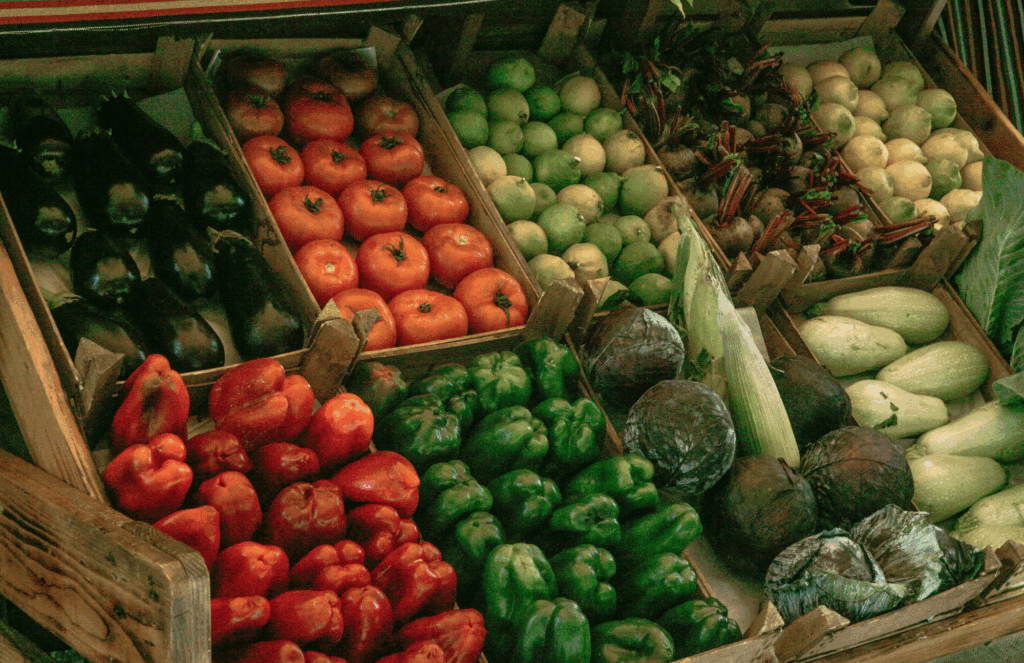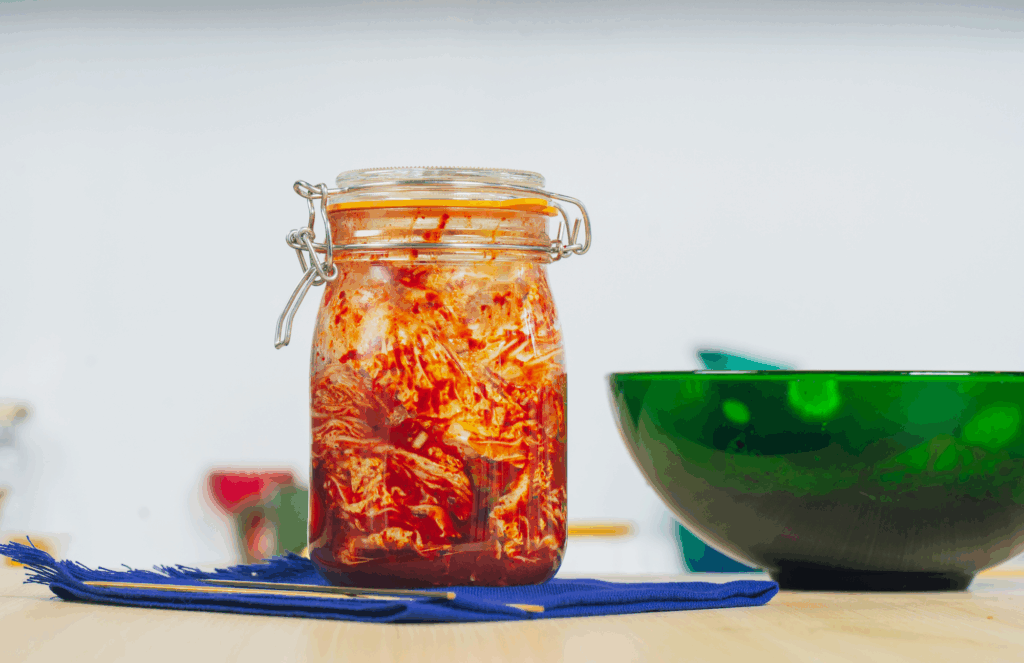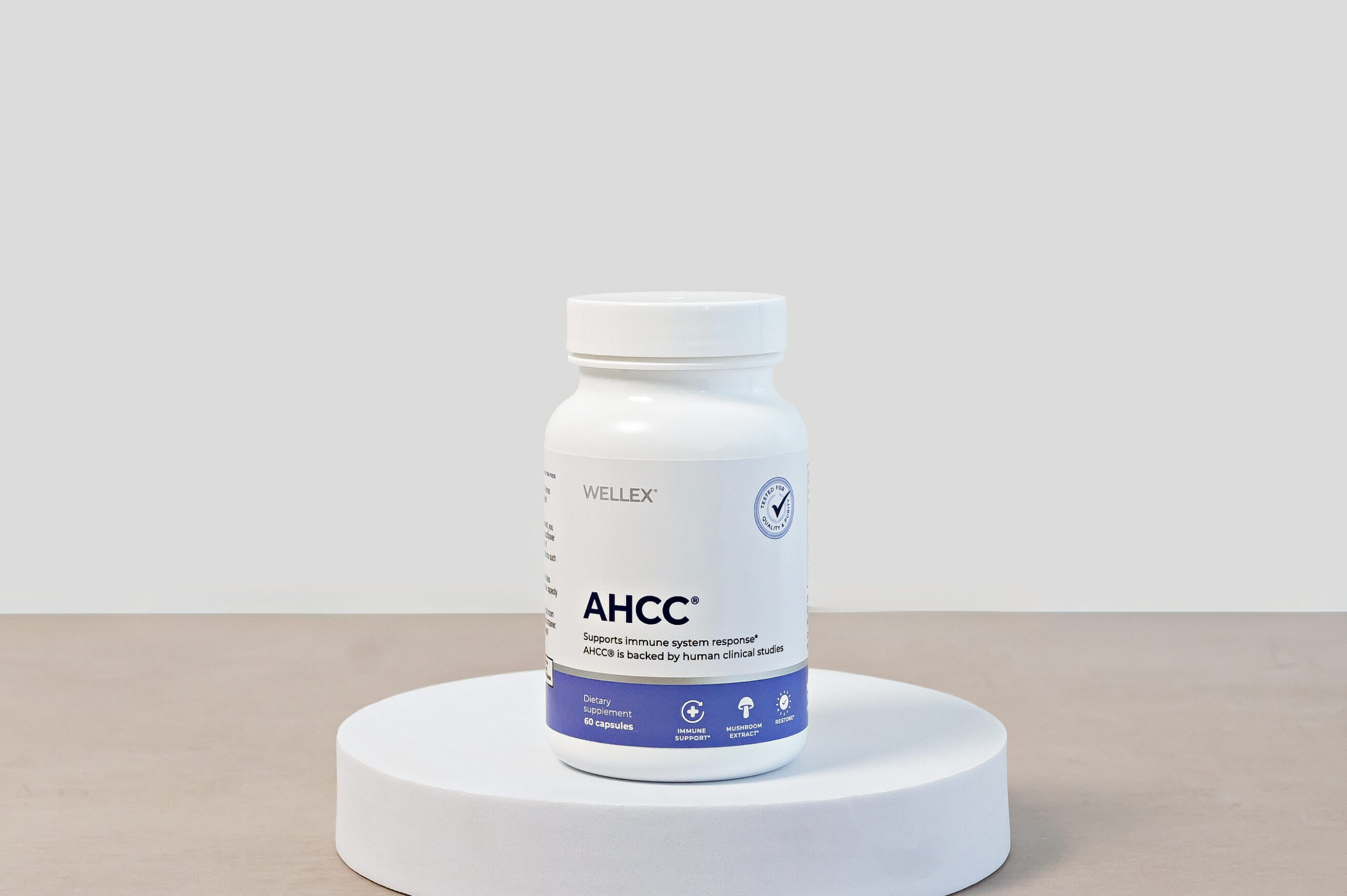Immune Health Grocery Guide: Strong Foundations for Inflammation Support
Table of Contents
Introduction
Your grocery cart isn’t just a shopping list, it’s your first immune health grocery guide. The foods you choose each week become the building blocks of your immune system, hormone balance, and inflammation support. But with endless TikTok fads, supplement lists, and conflicting advice, how do you actually know what belongs in your cart?
That’s why we created the Strong Foundations Grocery Guide – a science-backed, approachable resource that makes everyday shopping simple and effective. Below, we’ve answered the most common grocery questions women 20-45 ask about nutrition, immune health, gut health, and inflammation support so you can shop with confidence. For a seasonal perspective, see why cold and flu prevention starts in September.
Q1: Why does what I buy at the grocery store matter for my immune system?
Your grocery cart is your first defense. Choosing foods rich in antioxidants, vitamin C, zinc, and vitamin D can help support your immune system and maintain a healthy inflammatory balance. This matters because chronic inflammation has been associated with concerns like fatigue, skin imbalances, digestive discomfort, and increased long-term health risks.
Think of food as your daily immune investment: berries for antioxidants (learn more about antioxidants here), broccoli sprouts for sulforaphane, and wild salmon for omega-3s. For a bigger picture on seasonal habits, explore how to build a robust immune system this winter.
Q2: What are the “strong foundations” of immune health and inflammation support?
The strong foundations for women’s health nutrition go beyond quick fixes. At Wellex, we focus on four pillars proven to support immunity and balance inflammation:
- Stress support: magnesium-rich leafy greens and omega-3s support nervous system function and promote resilience.
- Gut health foods: fermented foods and fiber fuel your microbiome (discover 4 ways to improve gut health).
- Estrogen metabolism + liver support: cruciferous vegetables (broccoli, kale, cabbage) provide sulforaphane (National Cancer Institute).
- Micronutrients: zinc, folate, and vitamin D fill common gaps.
👉 [Download the full Strong Foundations Grocery Guide here].
Q3: How do I actually build an immune-supportive grocery list?
Building an anti-inflammatory grocery list doesn’t have to be complicated. Start with a few key categories:
- Produce aisle: berries, leafy greens, crucifers, citrus fruits.
- Protein sources: wild fish, legumes, lentils.
- Healthy fats: extra virgin olive oil, nuts, and seeds.
- Pantry staples: beans, oats, turmeric, and ginger.
This mix creates a grocery guide for immune health that fuels your body all week long.

Q4: What are quick swaps I can make for healthier inflammation balance?
Simple anti-inflammatory swaps can turn your grocery list into a healing tool:
- Instead of processed oils → choose extra virgin olive oil.
- Instead of white bread → try whole-grain or gluten-free fiber-rich options.
- Instead of sugary drinks → opt for infused water or green tea.
- Instead of chips → snack on roasted chickpeas or nuts.
Q5: How can grocery shopping help balance my hormones?
Diet directly influences hormone health. A well-chosen hormone balance diet includes:
- Cruciferous veggies to support estrogen metabolism.
- Seeds and nuts for hormone-building fats.
- Protein for blood sugar balance and cycle health (CDC).
This connects to our work on endocrine health – including how to reduce exposures from hidden fertility disruptors.
Q6: Can food really lower my stress and support mental health?
Absolutely. Certain foods act as natural stress regulators and support the gut-brain connection:
- Magnesium-rich options like avocados, leafy greens, and pumpkin seeds help support your body’s stress response and promote relaxation
- Omega-3 fatty acids from salmon or walnuts contribute to brain health.
- Fermented foods like kimchi or yogurt support a healthy gut microbiome, an area of growing research interest in relation to stress resilience and emotional well-being.

Q7: What are the top immune-supportive “superfoods” I should always have in my cart?
Every immune health grocery guide should highlight staples to boost defenses:
- Garlic, ginger, and turmeric (anti-inflammatory spices).
- Berries (antioxidant-rich fruits).
- Broccoli sprouts (sulforaphane superstar).
- Mushrooms (explore the immune benefits of shiitake mushrooms).
- Green tea.
For a mineral-rich addition, see how Irish sea moss boosts immunity naturally.
Q8: How do I shop smart if I’m busy, on a budget, or short on time?
A healthy grocery shopping on a budget plan is absolutely possible:
- Buy frozen fruits and veggies (nutrient content is the same as fresh).
- Keep canned beans and lentils on hand for quick meals.
- Meal prep proteins and greens once a week.
- Focus on 2–3 staples each trip to keep things realistic.
Q9: Do supplements matter if I’m already eating well?
Food always comes first, but supplements can fill nutritional gaps in a busy lifestyle. Even with a solid anti-inflammatory grocery list, many women still need:
- Vitamin D especially in winter months when Sun exposure is limited
- Zinc and Vitamin C to support immune function during cold and flu season
- B Complex if levels are low on blood work, or during times of stress
- AHCC for advanced immune support based on emerging research

Your grocery cart sets the foundation, but supplements act as the “extra layer” of support.
👉 [Explore The Well Collection here].
Wrap-Up
Your grocery cart is more than a checklist, it’s your tool for building resilience, supporting immunity, and keeping inflammation balanced. Start with the Strong Foundations Grocery Guide, make one small change this week, and notice the difference in your energy, mood, and overall wellness.
👉 Download the full Strong Foundations Grocery Guide here.
References
- National Cancer Institute. Cruciferous Vegetables and Cancer Prevention.
- Centers for Disease Control and Prevention. The Role of Nutrition in Health Promotion and Chronic Disease Prevention.
Share: